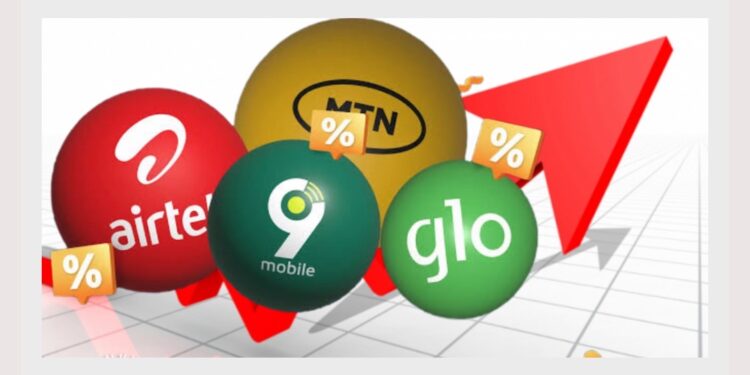Rising internet costs in Nigeria have led to a noticeable decline in data consumption, according to figures released by the Nigerian Communications Commission (NCC).
Between January and April 2025, national internet usage dropped by 1.76%, falling from 1,000,930.60 terabytes to 983,283.43 terabytes. This shift came shortly after a substantial increase in data tariffs was introduced earlier in the year.
In February, the NCC approved a 50% hike in data pricing, raising the cost of popular data plans across the board. For instance, the former ₦1,000 price tag for 1.5GB now buys just 1.8GB at ₦1,500. Larger bundles saw even steeper increases: 20GB now costs ₦7,500 (up from ₦5,500), while a 90-day 1.5TB plan jumped from ₦150,000 to ₦240,000.
This spike in data costs has led to a reduction in usage, as many Nigerians grapple with rising inflation and economic instability. The financial strain appears to have discouraged consumers from purchasing larger plans or consuming high volumes of data.
In February, immediately after the tariff changes were rolled out, internet consumption plummeted by 10.8%, dropping to 893,054.80 terabytes — a sharp contrast to January’s usage. Although March showed a brief rebound, reaching 995,876.10 terabytes, April saw another dip of over 12,500 terabytes.
Interestingly, while consumers pulled back on internet use, telecom giants continued to post strong revenues. MTN Nigeria reported over ₦1 trillion in earnings for Q1 2025, a 40.5% rise compared to ₦752.9 billion in the same period the previous year.
Industry-wide, major operators like MTN, Airtel, and 9Mobile had long campaigned for higher tariffs, citing over a decade of stagnant pricing despite inflation, operational costs, and currency volatility. By the end of 2024, Nigeria’s inflation had surged to 32.47%, up from 29.90% earlier that year. At the same time, the naira lost significant value, weakening from ₦600 per U.S. dollar in 2023 to ₦1,600.
With telecom companies facing projected revenue losses of over $11 billion between 2022 and 2026 due to the delay in price revisions, the push for upward adjustments became unavoidable. By 2022, operators had already requested a 40% increase; now, they argue that the current economic realities demand a 100% adjustment.
Despite the rationale behind the price hikes, many Nigerians continue to struggle under the weight of rising costs, limiting their digital access at a time when connectivity is increasingly vital.

